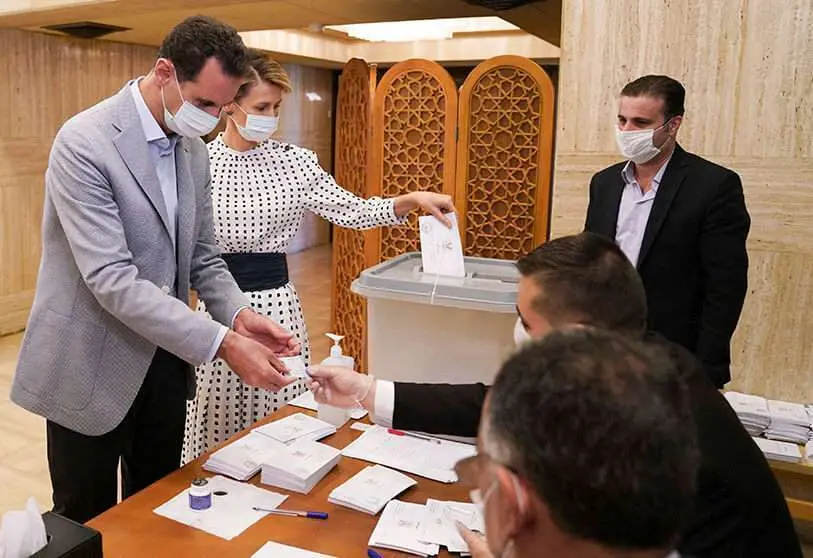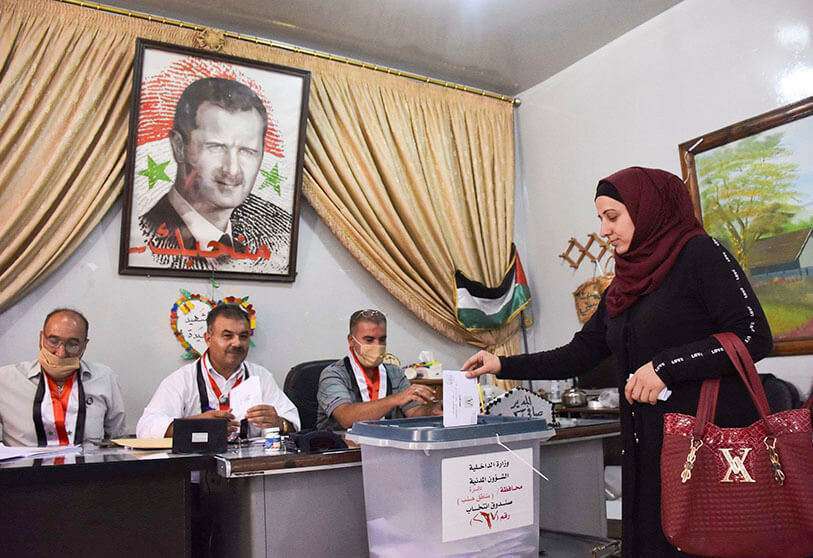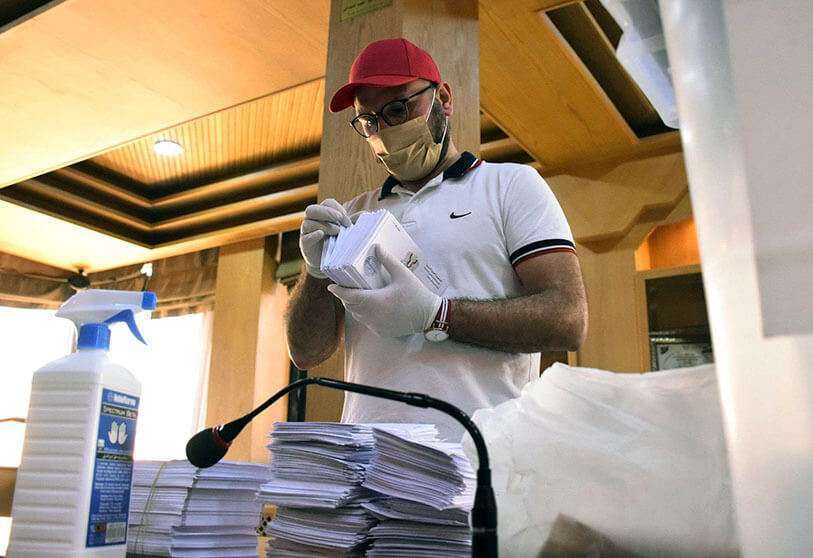Syria's election hangover points to new Ba'ath majority, opposition calls election a sham

Election hangover Monday in Syria. Although the vote has already started, according to the Syrian news agency Sana'a it is still too early to know the results. Although experts expect the Ba'ath party, led by President Bachar al-Assad, to maintain its current hegemony over the 250 seats in dispute. In 2016, with a 56% turnout, the party managed to win 200 seats. The leaders of the opposition in exile have called this election a farce and have predicted that al-Assad and his party colleagues will take over the legislative chamber. Millions of Syrian refugees and those citizens who are in areas outside the control of the Damascus government have not been able to go to the polls in the third parliamentary elections to be organised after the outbreak of civil war in 2011.
A total of 1,656 people turned out as candidates and 7,277 polling stations were set up for citizens to exercise their right to vote between 7 a.m. and 7 p.m., although the closure of the polls was extended by four hours to 11 p.m. by the High Electoral Judicial Commission. The head of the commission, Judge Samer Zamriq, assured Sana'a that the committees in the polling stations began counting the votes immediately after the polls closed and explained that there had been no violations or irregularities in the electoral process.

Zamriq stressed that each centre's committee carries out the counting of votes in the same place where the voting records are organised and handed over to the judicial sub-committee. "During the counting, the candidates, their representatives and the media are allowed to monitor the voting process and the counting of the votes, and to record them in a special record," he said.
Despite this display of transparency, the opposition in exile has complained since the al-Assad family took power 50 years ago that there can be no real elections. The Syrian National Coalition, of the opposition, has said that this quote was "a theatrical election of the al-Assad regime", according to the digital version of Arab News on Monday. Another opposition leader, Obeida Nahhas, said the election was a "brazen farce" that had been going on for 50 years. "The length of the era of dictatorship and tyranny has produced a situation that does not reflect the opinion of the popular majority. It has emptied the elections of their true democratic significance," he explained in statements collected by Arab News.

The country's authorities, unaware of these complaints, have stressed the strength of the country and the holding of elections despite the long armed conflict. "Today's is a political victory that comes on top of military victories," Sana Hussein Arnous, acting minister after Imad Khamis was sacked for the protests that followed the currency devaluation in mid-July, told the news agency at the polls. The main challenges of the next legislature will be the appointment of a new prime minister to replace Arnous and the approval of a new constitution, one of the main projects promoted by Russia, through the tripartite table in Astana, together with Iran and Turkey, to put an end to the Syrian conflict.
These elections have been marked by the expansion of COVID-19 in the country. So far there have been 25 deaths and 496 infections in the areas controlled by the Damascus government, according to the Ministry of Health. Masks have been worn in polling stations to prevent infection. An uncontrolled wave of contagion would pose a challenge to the health system of a country ruined by nine years of bloody civil war.
Violence has not disappeared from the scene either. At least seven people have been killed in the last 24 hours and more than 60 injured this Sunday in a car bomb attack near the Bab el Salam border crossing on the border with Turkey, according to the London-based Syrian Observatory for Human Rights, but with a network of collaborators on the ground.
This is the second most important crossing point in the area for the entry of humanitarian aid as well as for the establishment of Turkish goods that fill the shelves of Idlib province and part of Aleppo. The detonation of an explosive device on Saturday night in front of the mosque in the Nahr Aisha neighbourhood on the outskirts of Damascus has marked Sunday's election day with mourning. Another was injured, Sana reported. The Observatory said that the deceased was a member of Syrian intelligence.








